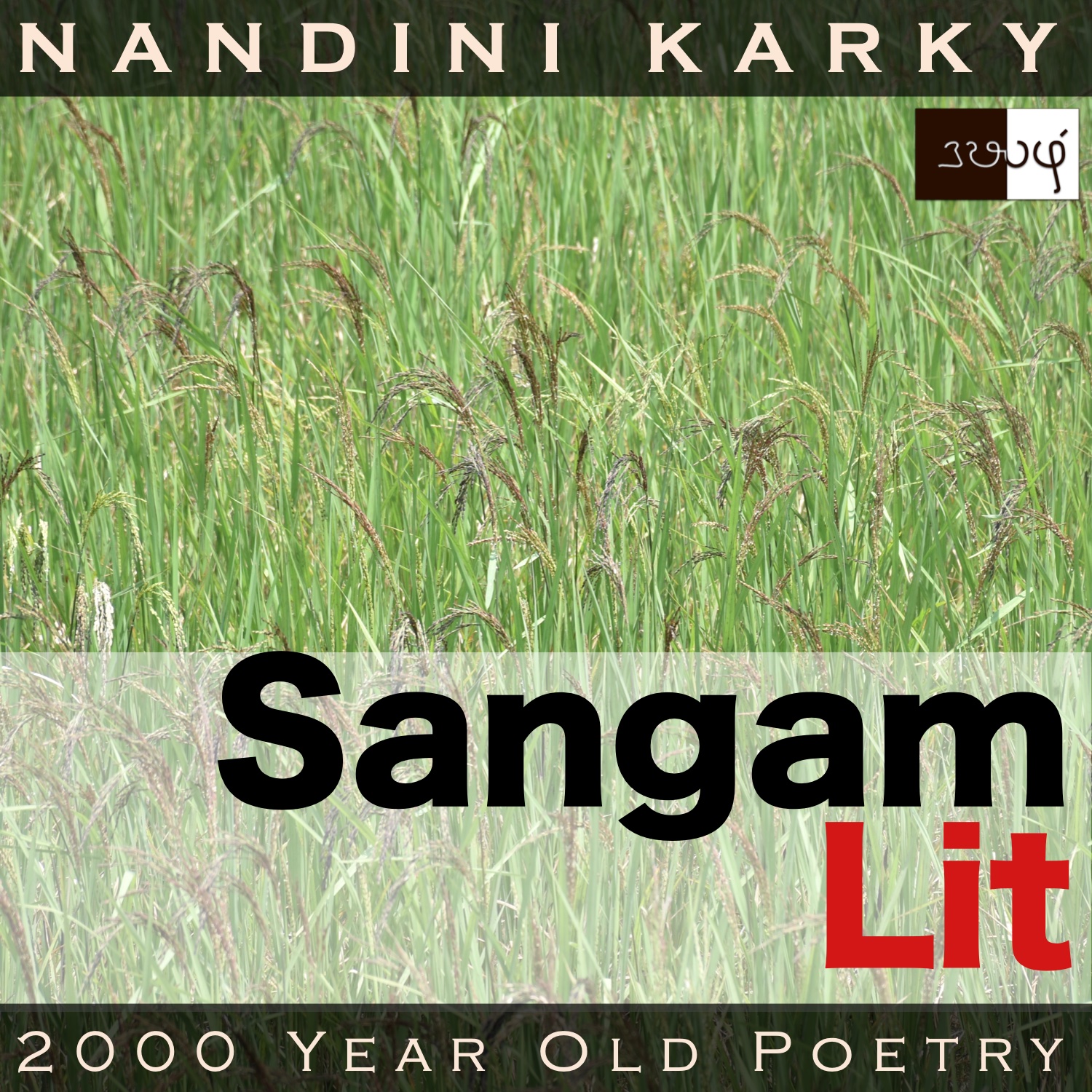Podcast: Play in new window | Download
Subscribe: Apple Podcasts | Spotify | Amazon Music | Android | iHeartRadio | TuneIn | RSS | More

In this episode, we perceive a curious way of persuading another, as depicted in Sangam Literary work, Kurunthogai 375, penned by an anonymous poet. Set in the mountains of ‘Kurinji’, the verse speaks in the voice of the confidante to the lady, while passing on a hidden message to the man, listening nearby.
அம்ம வாழி, தோழி!-இன்று அவர்
வாரார் ஆயினோ நன்றே-சாரல்
சிறு தினை விளைந்த வியன்கண் இரும் புனத்து
இரவு அரிவாரின் தொண்டகச் சிறு பறை
பானாள் யாமத்தும் கறங்கும்
யாமம் காவலர் அவியாமாறே.
‘It would be best if he trysts not’ is the central thought here. In the opening words ‘அம்ம வாழி, தோழி’ meaning ‘Listen to me, my friend, may you live long’, we yet again observe the Sangam tradition of requesting attention by rendering a blessing. The phrase ‘வாரார் ஆயினோ நன்றே’ meaning ‘if he comes not, that would be good’ echoes the core theme. Next, we turn our attention to ‘சிறு தினை’ or ‘little millets’ growing in the ‘இரும் புனம்’ or ‘huge fields’. A practice of harvesting at night can be seen in ‘இரவு அரிவாரின்’ meaning ‘those who reap at night’. Music makes its presence felt in ‘தொண்டகச் சிறு பறை’ meaning ‘a small thondaka drum’, referring to an ancient percussion instrument, unique to this landscape of hills in the Sangam land, somewhat similar in shape to the ‘udukkai’, the small hourglass drum seen today. Ending with the words ‘யாமம் காவலர் அவியாமாறே’ meaning ‘midnight guards sleep not’, the verse intrigues our curiosity.
An ancient drum seems to echo the heartbeat of a lady! The context reveals that the man and lady were leading a love relationship and the man was trysting with the lady for a long while. Observing that the man was intent only on temporary trysting, the confidante decides to nudge him in the right direction. One night, when the man comes near the lady’s house, pretending not to notice him, but making sure he’s in earshot, the confidante says to the lady, “Listen, my friend, may you live long! If he does not come today, that will be good. In the mountain slopes, little millets are fully grown in our expansive fields. As the harvesting continues into the night, the small ‘thondaka’ drums resound aloud even at the midnight hour, not letting the night guards get any sleep!” With these words, the confidante refuses both tryst by day and night in one shot, and thereby, subtly points out the only way forward for the man is to seek the lady’s hand in marriage.
All we heard was description of agricultural activity – How does the confidante sneak her message of ‘marry her, marry her’ within this? Let’s follow her words and find out. She starts by directly telling the lady it’s better if the man comes not. And then she goes on to talk about how millets are flourishing in the fields and the drums of those who harvest at night is resounding even in the pitch dark hour of midnight, not letting the sleepy eyes of night guards close, even for a moment. Zooming on to the wide open eyes of the night guards, the confidante concludes her words.
This is nothing short of a ‘beware’ message to the man. ‘You will be caught by those sleepless night guards any moment, if you were to come at night’, the confidante warns the man. Next, the harvesting of crops at night is not a usual affair. This only happens when there’s a huge quantity to be reaped and also, if it’s a time-bound thing. That means, the harvesting happens all day and is running late into the night, and thus, there was not a moment’s space for the man to relish his clandestine meeting with the lady all day. So, better give up this temporary trysting and go towards a permanent union, the confidante tells the man. Two nuances struck me in this verse – one, the reason for beating the drums so late at night could be to keep away wild animals from attacking these midnight farmers. The other is the subtle thought that even though they were night guards by profession, they tend to sleep at night and that is not happening only because of the night-time harvest and its consequent drum beats. A Sangam song that communicates inner intentions through elements of the outer world!




Share your thoughts...